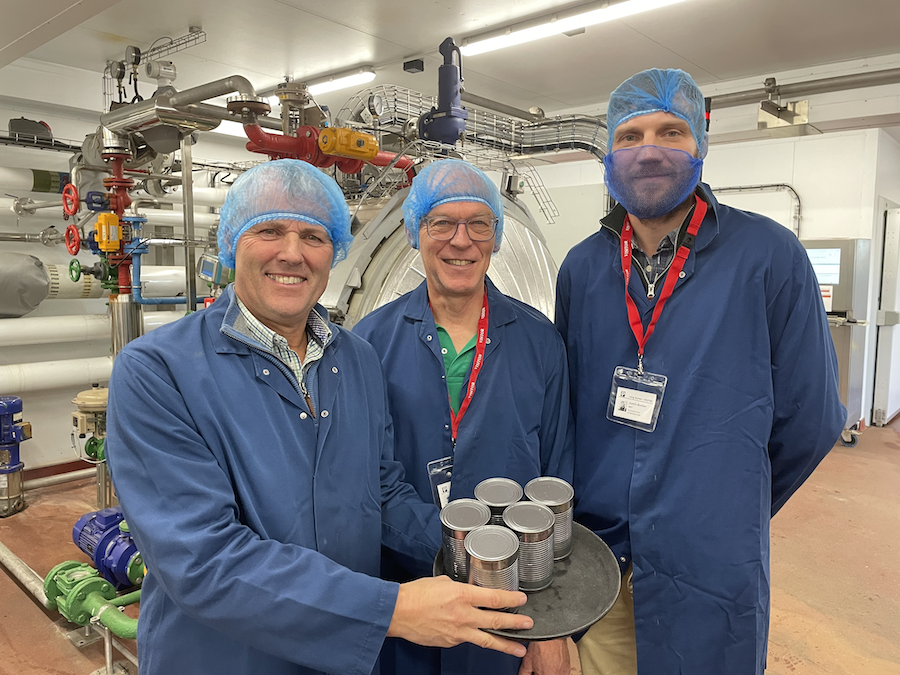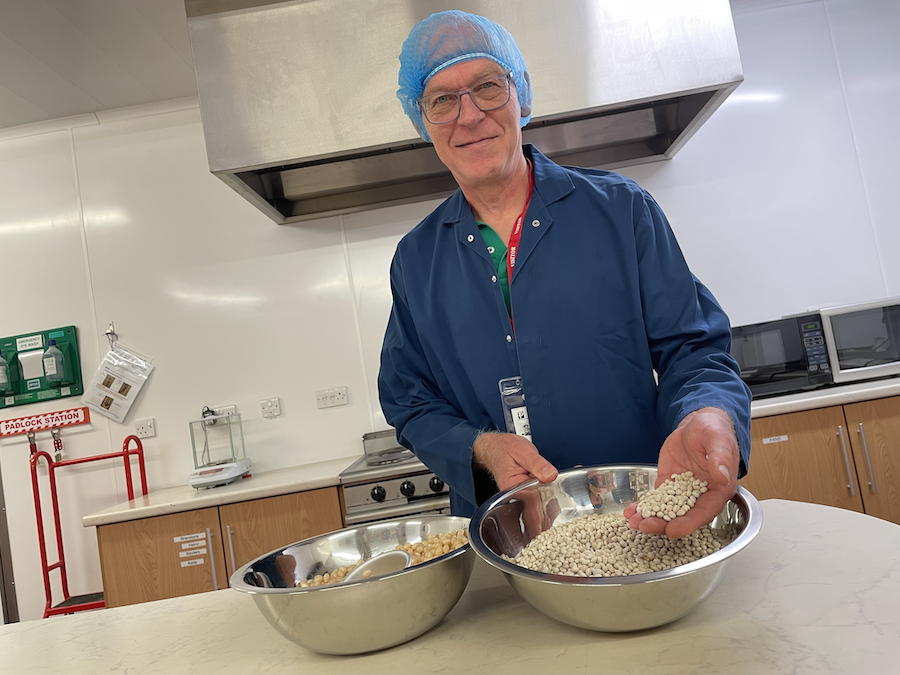British baked beans project reaches the next stage
30th November 2023
The first baked beans to be grown in the UK have now progressed to the tinning phase, an important step towards sustainable, UK-sourced food options.

Baked beans grown at a Lincolnshire farm as part of an innovative project led by the University of Warwick, have now progressed to the tinning stage.
Capulet beans were grown by farmer Andy Ward, using innovative methods developed at the University of Warwick Innovation Campus. It is the result of 12 years of work by Warwick’s Professor Eric Holub.
Mr Ward said:“It’s absolutely fantastic to be the farmer that’s grown these beans. To see them go through the line and into a tin – soon to be on a piece of toast, is unreal.”
Prof Holub, who spearheaded the project, added:”We went to the Princes factory to see how well the Capulet beans ‘can’ and they’ve done a marvellous job.”
Capulet beans represent a significant step towards sustainable, UK-sourced food options, in line with the University of Warwick’s mission to spearhead agricultural advancements and tackle global food security challenges.
Capulet beans are the first that can be used as baked beans to be grown in the UK. Previously, baked beans have had to be imported from as far as South America.
Prof Holub said: “Self-sufficiency in food production is important for reducing human impact on global climate. British-grown beans can help us shift our diets to a healthier future, adding to UK ingredients, and supplying the growing trend of flexitarian diets, with new markets such as Brit-Mediterranean and Brex-Mexican style food.”

Growing haricot beans on a commercial scale in the UK would reduce food miles, contribute to achieving climate goals in the food sector, improve soil structure, and help extend farm rotations by offering a short-season, nitrogen-fixing crop (extracting it from the air and turning it into a usable form for growth) desired by UK growers.

